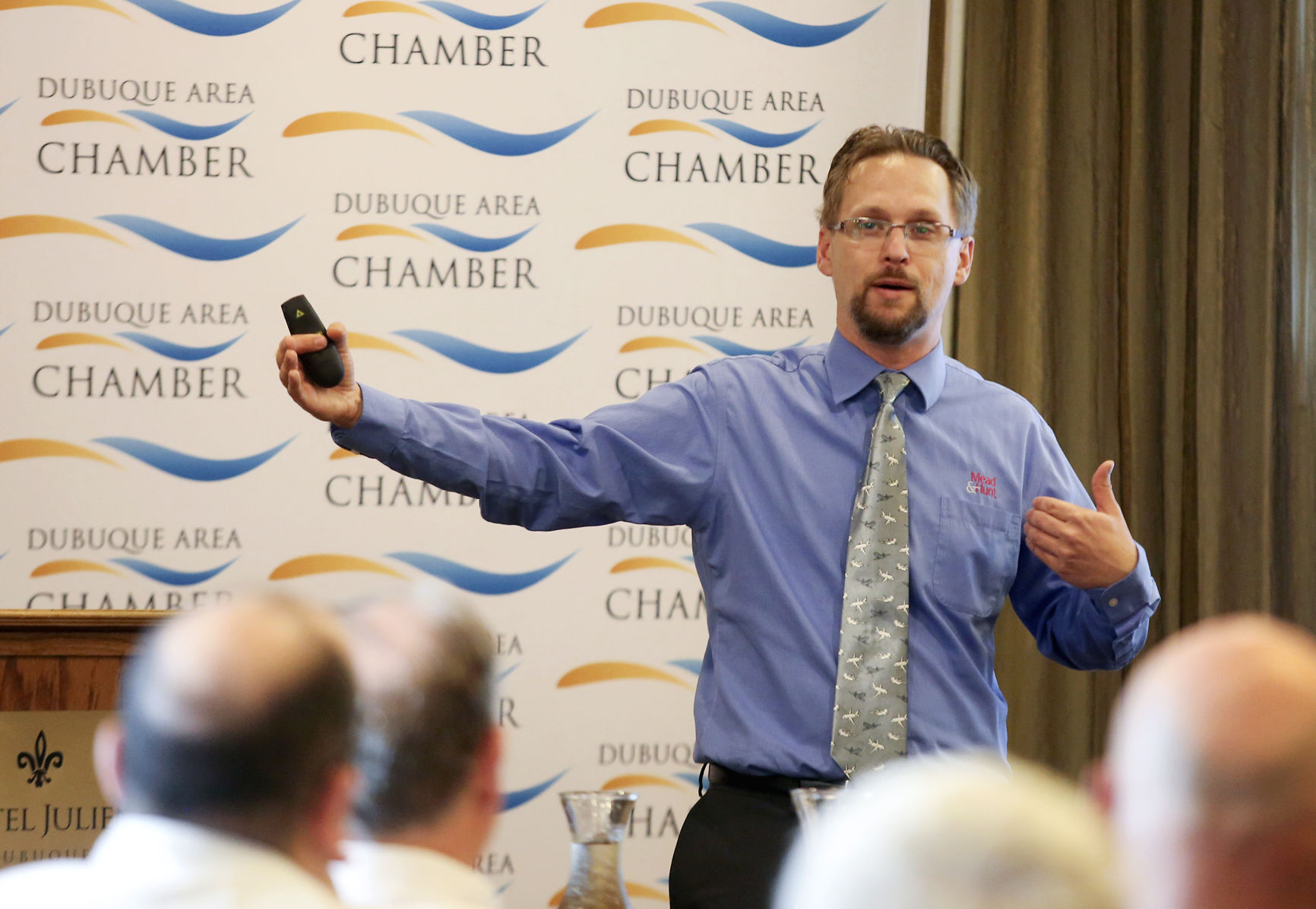Dubuque’s role as an arrival and departure point for corporate air travel buoyed the local airport before COVID-19 struck, with regular usage by Fortune 500 and other companies.
However, aviation consultant Jeffrey Hartz told participants in a webinar Thursday that this role could lead to Dubuque Regional Airport lagging behind some of its area peers as the airline industry begins its slow, post-pandemic recovery.
“Dubuque is a very business-oriented market,” said Hartz, of the consulting firm Mead & Hunt, during a webinar hosted by Dubuque Area Chamber of Commerce. “The business market shows no signs of recovery this year.”
Hartz said that while leisure airline travel is beginning to recover from COVID-19, the vast majority of corporate business travel remains grounded.
“There really isn’t much in the way of discretionary business traffic, and that is what is really worrying the industry right now,” he said. “Markets like Dubuque live and die on corporate travel. Until business traffic comes back, it will remain a challenge to get back to where we were.”
Dubuque’s airport boasted an average of 36,592 passengers per month in 2019. By March of 2020, the pandemic essentially halted all but emergency air travel. Dubuque and other American markets saw the number of passengers passing through security screenings — a reliable indicator of air travel trends — drop by 95% by April 1, 2020.
“Last year was a year like none other,” Hartz said. “We’ve never had a worse period of time in the airline industry.”
He said airlines reacted to the precipitous downturn by slicing capacity, not only by cutting the number of flights but even by retiring planes from their fleets.
“I don’t think anybody expected COVID-19 to have this type of impact on the industry,” he said.
The industry’s recovery has been marked by a shifting emphasis toward leisure travel and destinations, according to Hartz.
“It’s a tale of two worlds,” he said.
While flights delivering passengers to destinations in the Caribbean and South America seem to be rebounding quickly in terms of airline capacity, flights to hubs associated with business travel remain curtailed.
“Traditional airlines really got hammered,” Hartz said.
One such traditional airline, American Airlines, provides service between Dubuque Regional Airport and Chicago.
American initially cut its capacity by 75% and removed more than 150 aircraft from its fleet. While its Dallas hub has returned to about 90% of its pre-pandemic capacity, American’s Chicago O’Hare International Airport capacity is recovering at a much-slower pace at just 33%.
American Airlines’ fortunes directly influence the fortunes of Dubuque’s airport. That was on display in October, when the airline suspended flights into and out of Dubuque. A single round-trip flight per day returned in January, with a second added this month.
Dubuque served 324 passengers in January, 486 in February and 807 in March, according to Todd Dalsing, the airport’s director.
“We’re seeing a steady increase, but remember, that was from one flight per day,” Dalsing said. “We had the flight added in April, but we don’t have the data from that one yet because it just started.”
Dubuque’s airport received a boost in February 2020, with the award of $775,000 from the U.S. Department of Transportation’s Small Community Air Service Development Program.
The money could be used to help provide a “minimum revenue guarantee,” which would improve the chances of initiating twice-daily flight service from Dubuque to Denver, adding a second hub to local fliers’ options.
However, the pandemic has complicated those efforts. Hartz said Dubuque is only one of many small markets to have received the funding.
“Dozens of cities now have significant war chests to try to bring in service,” Hartz said. “That will result in big competition.”


